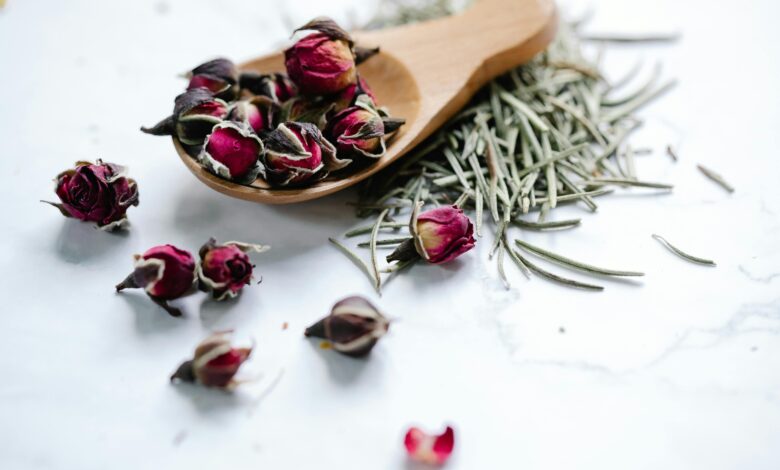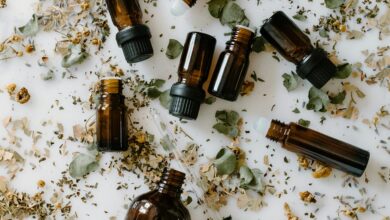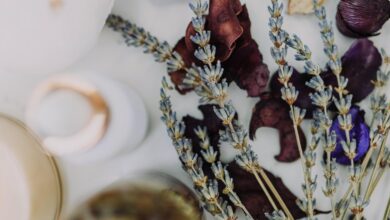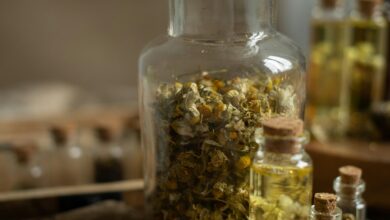The Best Herbal Remedies for Common Ailments

Herbal remedies have been used for centuries across cultures to treat a variety of common ailments. These natural solutions are often preferred by those seeking alternatives to conventional medicine, as they tend to have fewer side effects and can be gentler on the body. While herbal remedies are not a substitute for professional medical advice, they can provide relief for mild to moderate symptoms. In this guide, we’ll explore some of the best herbal remedies for common health issues, along with their benefits and precautions.
1. Colds and Flu
Echinacea
- Benefits : Echinacea is one of the most popular herbs for boosting the immune system. It may help reduce the duration and severity of colds and flu by stimulating white blood cell production.
- How to Use : Take echinacea supplements, drink echinacea tea, or use tinctures at the first sign of symptoms.
- Precautions : Avoid long-term use, as it may lose effectiveness over time. Consult a doctor if you have autoimmune disorders.
Elderberry
- Benefits : Elderberry syrup or capsules are known for their antiviral properties, which can help combat cold and flu viruses. Studies suggest elderberry reduces fever and improves recovery time.
- How to Use : Consume elderberry syrup daily during flu season or take capsules as directed.
- Precautions : Do not consume raw elderberries, as they can be toxic. Stick to commercially prepared products.
2. Digestive Issues
Peppermint
- Benefits : Peppermint is widely used to relieve symptoms of irritable bowel syndrome (IBS), indigestion, and bloating. Its active compound, menthol, relaxes the muscles of the digestive tract.
- How to Use : Drink peppermint tea after meals or take enteric-coated peppermint oil capsules for IBS relief.
- Precautions : Avoid if you have gastroesophageal reflux disease (GERD), as peppermint can worsen acid reflux.
Ginger
- Benefits : Ginger is effective for nausea, motion sickness, and upset stomachs. It also aids digestion by increasing bile production and reducing inflammation in the gut.
- How to Use : Chew fresh ginger, sip ginger tea, or take ginger supplements before traveling or when feeling nauseous.
- Precautions : High doses may cause heartburn or interact with blood-thinning medications.
3. Anxiety and Stress
Chamomile
- Benefits : Chamomile has calming properties that make it ideal for reducing anxiety, promoting relaxation, and improving sleep quality. Its flavonoids act as mild sedatives.
- How to Use : Brew chamomile tea 30 minutes before bedtime or use chamomile essential oil in aromatherapy.
- Precautions : Rarely, chamomile can trigger allergic reactions in people sensitive to plants in the daisy family.
Lavender
- Benefits : Lavender is renowned for its soothing effects on the nervous system. It can alleviate stress, insomnia, and mild anxiety without causing drowsiness.
- How to Use : Diffuse lavender oil, apply diluted oil topically, or take lavender supplements like Silexan.
- Precautions : Always dilute lavender essential oil before applying it to the skin to avoid irritation.
4. Headaches and Migraines
Feverfew
- Benefits : Feverfew has been traditionally used to prevent migraines and reduce headache frequency. Its anti-inflammatory properties may inhibit the release of substances that cause blood vessels to constrict.
- How to Use : Take feverfew capsules or tablets daily as a preventive measure.
- Precautions : Not recommended for pregnant women or individuals taking blood-thinning medications.
Willow Bark
- Benefits : Willow bark contains salicin, a compound similar to aspirin, making it effective for tension headaches and pain relief.
- How to Use : Drink willow bark tea or take standardized extracts.
- Precautions : Avoid if you’re allergic to aspirin or have kidney issues.
5. Insomnia and Sleep Disorders
Valerian Root
- Benefits : Valerian root is a natural sedative that promotes deep, restorative sleep. It increases levels of gamma-aminobutyric acid (GABA) in the brain, which calms nerve activity.
- How to Use : Take valerian capsules or drink valerian tea an hour before bed.
- Precautions : May cause drowsiness the next day; avoid combining with alcohol or other sedatives.
Passionflower
- Benefits : Passionflower helps reduce anxiety and improve sleep quality by enhancing GABA activity in the brain.
- How to Use : Steep passionflower leaves in hot water for tea or take liquid extracts.
- Precautions : Avoid if you’re pregnant or breastfeeding.
6. Skin Conditions
Aloe Vera
- Benefits : Aloe vera gel is excellent for soothing sunburns, minor cuts, and dry skin. Its anti-inflammatory and antimicrobial properties accelerate healing.
- How to Use : Apply pure aloe vera gel directly to affected areas.
- Precautions : Ensure the product is free of added chemicals or fragrances.
Calendula
- Benefits : Calendula flowers have antibacterial and anti-inflammatory properties, making them useful for treating eczema, rashes, and wounds.
- How to Use : Use calendula creams or ointments, or steep dried petals in water for a soothing wash.
- Precautions : Perform a patch test to check for allergies.
7. Joint Pain and Inflammation
Turmeric
- Benefits : Turmeric contains curcumin, a powerful antioxidant and anti-inflammatory compound that can ease joint pain and stiffness associated with arthritis.
- How to Use : Add turmeric powder to food, drink golden milk (turmeric latte), or take curcumin supplements with black pepper for better absorption.
- Precautions : High doses may irritate the stomach; consult a doctor if you’re on blood thinners.
Boswellia (Frankincense)
- Benefits : Boswellia resin reduces inflammation and supports joint health, particularly for osteoarthritis and rheumatoid arthritis.
- How to Use : Take boswellia supplements or use topical creams containing boswellic acids.
- Precautions : May interact with certain medications, so consult your healthcare provider.
8. Menstrual Cramps
Raspberry Leaf
- Benefits : Raspberry leaf tea tones the uterine muscles, easing menstrual cramps and regulating cycles.
- How to Use : Drink raspberry leaf tea throughout the month or during your period.
- Precautions : Avoid excessive consumption if you’re pregnant unless advised by a midwife.
Cramp Bark
- Benefits : As the name suggests, cramp bark relaxes smooth muscles, providing relief from painful menstrual cramps.
- How to Use : Take cramp bark tincture or capsules as needed.
- Precautions : Consult a healthcare professional before using if you’re pregnant or nursing.
9. Energy and Fatigue
Ginseng
- Benefits : Ginseng boosts energy, enhances mental clarity, and combats fatigue. It’s especially helpful for chronic fatigue syndrome and low stamina.
- How to Use : Take ginseng capsules, drink ginseng tea, or add powdered ginseng to smoothies.
- Precautions : Avoid prolonged use; consult a doctor if you have high blood pressure or diabetes.
Ashwagandha
- Benefits : Ashwagandha is an adaptogenic herb that helps the body manage stress and increase energy levels. It also improves focus and endurance.
- How to Use : Take ashwagandha capsules or mix powdered ashwagandha into drinks.
- Precautions : Not recommended for pregnant women or those with thyroid conditions.
10. Respiratory Issues
Thyme
- Benefits : Thyme has expectorant and antimicrobial properties, making it effective for coughs, bronchitis, and respiratory infections.
- How to Use : Make thyme tea or inhale steam infused with thyme oil.
- Precautions : Avoid large amounts if you’re pregnant or have a bleeding disorder.
Licorice Root
- Benefits : Licorice root soothes sore throats, loosens mucus, and reduces inflammation in the respiratory tract.
- How to Use : Drink licorice root tea or take lozenges containing licorice extract.
- Precautions : Long-term use can raise blood pressure; limit intake to short periods.




